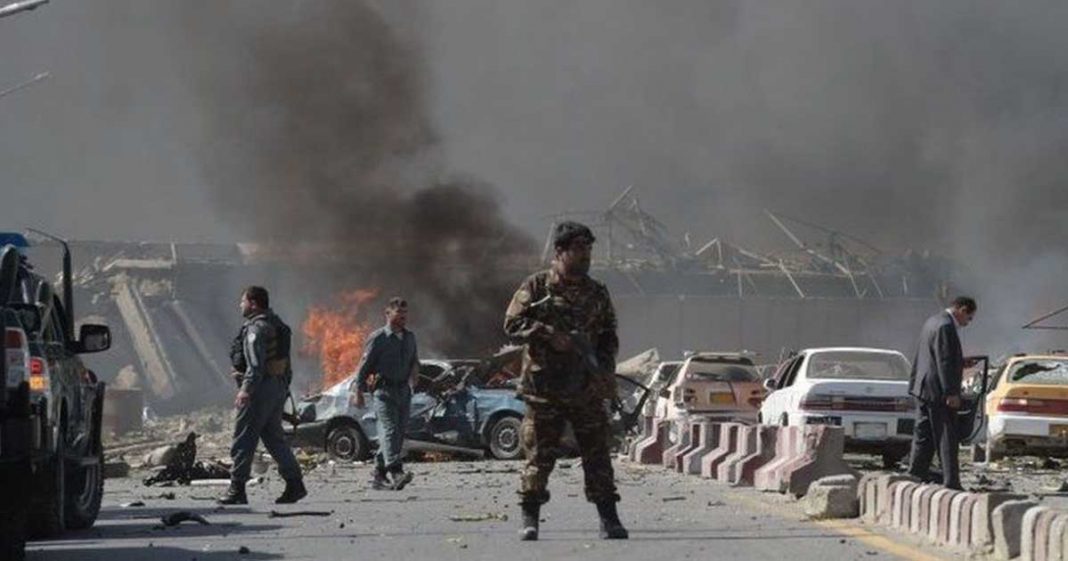|Arslan Ashiq
The so-called power competition-cum-game in Afghanistan is about to settle down. The war on terror which started in 2001 brutally killed many Afghan civilians, and military forces of all nations that were involved in this fiasco. Thus, it led to the mass migration of people from one region to another, finding a living, distorting culture, and losing identity.
Fortunately, the un-defeated land and its habitants crumbled the NATO alliance and many other western military might without any latest weapons but difficult terrain. It reminds us of the words of historian Williamson Murray, “terrain determines the peace and method of fighting.”
The Taliban said in 2004 when hundreds of highly weaponized NATO personnel invaded Afghanistan but crushed overnight, “You have watches and we have time, let’s fight.”
Read more: NATO welcomes Taliban, Afghan government’s breakthrough
Moreover, in a war-like situation for two decades no party gained anything but lost 6 to 8 trillion dollars with more than 10000 total casualties. According to a realistic perspective, in war, states do not seek what is right, but what is left.
Concerns of a Taliban takeover
The Mutually Assured Destruction (MAD) led all stakeholders to hold their horses for a while. Resultantly, the USA announced to withdraw its forces from the battleground, and in comparison, the Taliban will guarantee to not let their land be used for terrorist activities.
For many liberal analysts and writers, the USA withdrawal without any re-construction, development, and fomenting a democratically elected government, the Taliban will gain the control to run it authoritatively. Their hegemony in Kabul would hinder civil society, the rights of women, and would do anything to curb the freedom of religion and speech.
Read more: How one after another super power lost in Afghanistan?
In contrast, the Taliban have the opinion that not the Republic of Afghanistan but the Islamic Republic of Afghanistan with the strong imposition of Shariah would run the new state affairs.
Hitherto, in 1996 when they controlled Afghanistan’s affairs, the Taliban introduced a hard-line version of Islam, banning women to work, and introducing Islamic punishments, which included stoning to death and amputations. Recently, after the Doha and Istanbul meeting, the Taliban’s suicide attack killed 3 female high court judges and 80 schoolchildren respectively.
Read more: Taliban would roll back Afghan women’s rights: US report
https://twitter.com/Gahul_Randhi_/status/1405235927291625475?s=20
Afghanistan cannot be left alone
Washington is leaving the land due to its shifting policy measures. It could no longer see the region with a security paradigm but rejoiced with other democratic countries in the region to counter the growing influence of China. It declared China “a strategic rival” at G7 Summit in Cornwall UK.
Furthermore, a power vacuum after troop’s withdrawal will allow a play-field for superpowers like Russia, China, India, and Iran to deter each other. Pakistan would be a scapegoat in this egregious environment which could jostle its smooth functioning economy and growth once again.
A New York Times report has also lamented that about two dozen Taliban factions are active in the region, and many of them covertly returning to Pakistan. For its safety, integrity, and people’s protection, Islamabad must have to dwell in the ongoing peace process to avoid any crumbling situation. Meanwhile, a democratically elected government will smoothen peace in Kabul and stabilize the region.
Read more: Will an interim form of government save Afghanistan?
Additionally, the USA as its strategic imperative is prone to withhold its intelligence agencies and surveillance drones nearby Afghanistan. American military establishment is seeking a suitable place in Central Asia or in South-Asia for establishing its bases to cater to the rise of China and to keep a check on Russia’s military developments.
The New York Times article published on 6th June claimed that the CIA chief secretly visited Pakistan and met with DG-ISI and COAS. Official agencies of Pakistan started unveiling news regarding this. Moreover, from Pakistan’s perspective, it has turned its foreign policy from strategic and security-centric to economic ones, it could not afford the indulgence in anyone’s foreign policy goals. It has to maintain its relations with China economically to boost its growth and development leveraging CPEC.
Read more: Neo-Bilateralism: A perspective on Pakistan’s foreign policy
In short, the USA along with its allies must propose a viable and durable solution for Afghanistan. The people of the mountain land could not be left at the mercy of the Taliban. They need a reconstruction plan, developmental funds, and indemnity of human rights.
The author can be reached at arslan3023@gmail.com.The views expressed in the article are the author’s own and do not necessarily reflect the editorial policy of Global Village Space.














